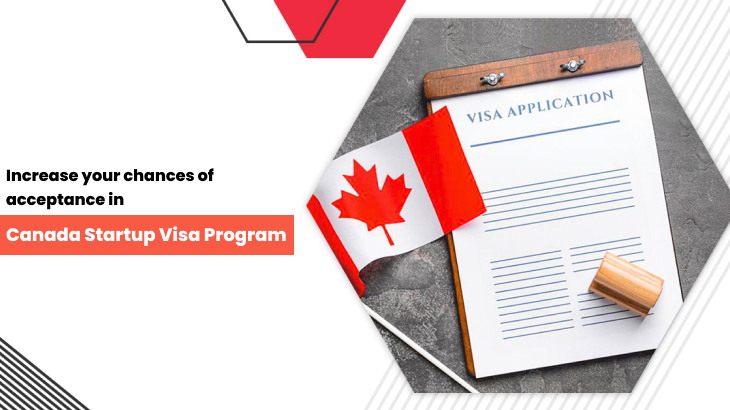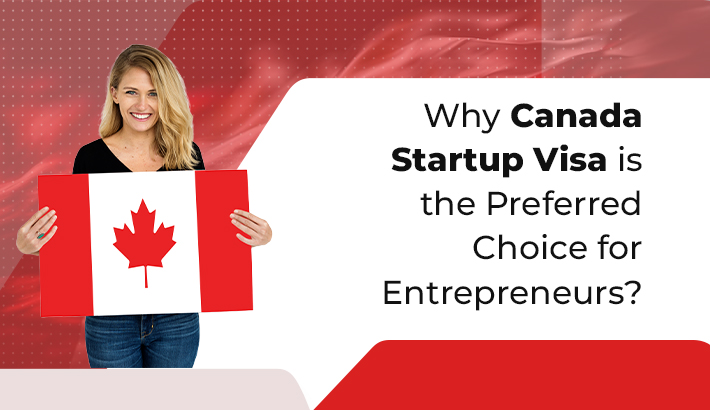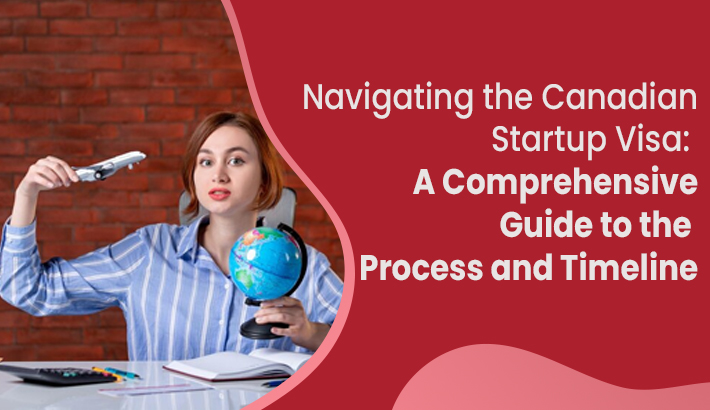The Canada Startup Visa Program supports immigrant business owners in expanding their enterprises in Canada. Successful applicants are connected with Canadian private sector groups where they can get finance, advice, and experience for starting and running their businesses there.
The Startup Visa programme does not require prior management experience, in contrast to practically every other federal and provincial entrepreneur program, which calls for a minimum of one or two years of previous experience either running a business or in top-level management.
Support from a legally recognized organization is sufficient. And that assistance can take the form of a financial donation or the candidate's acceptance into a business incubation program. Immigrants who use the Canada Start-up visa services can have a relatively smooth path ahead, unlike the other applicants.
Perks to Qualify and Get the Acceptance for Startup Visa Program
There are certain things to keep in mind to increase your chances of acceptance of a Canada Startup Visa and Start a new business in Canada.
Startup Idea
First, it's essential to have a solid business plan and convincingly demonstrate that your startup is viable and has the potential to be successful. If your startup is successful, you must also be able to demonstrate your ability to move permanently to Canada.
One way is to apply for a startup visa. The process is straightforward and can be completed in as little as two months. Here are the steps:
1. Decide what country you want to start your business in.
2. Research which type of startup visa will best suit your needs.
3. Gather all the necessary documents: business plan, proof of funding, contact information for investors, etc.
4. Make an appointment with the appropriate embassy or consulate in your home country (this will depend on where you live).
5. Present all of your documentation to an immigration officer who will decide whether or not you qualify for a startup visa.
Second, ensure you have a good relationship with the Canadian government officials reviewing your application. They are typically more open to granting visas to startups that have strong partnerships with the government. Finally, always keep an eye on current immigration trends in Canada so you can plan and make sure your application is as well-rounded as possible.
Documentation
When applying for a startup visa, it is essential to have documentation to support your case. This documentation can include things like business plan documents, financial statements, and product descriptions. Having this documentation ready will show that your company is viable and has the potential to be successful in Canada.
To be ready for anything, stay current on changes to Canadian immigration regulations. By adhering to these suggestions, you may secure a simple application procedure and long-term success in Canada as a startup entrepreneur.
Eligibility Criteria
This program seeks to bring creative foreign entrepreneurs to spawn new businesses and stimulate economic growth. Candidates for a Startup Visa must fulfill the following criteria to be qualified:
1. The ability to communicate in English or French at the CLB 5 level or higher;
2. Possess the money necessary to relocate to Canada;
3. Intend to relocate to a province besides Quebec;
4. Pass the security and medical screenings in Canada;
5. Show that a specific organization supports your company and complies with ownership requirements.
6. Under the Startup Visa Program, no more than five foreign nationals may apply for permanent residence on behalf of the same business.
Approaching the top Consultant
The critical requirement is to receive support from one of the Canada Startup Visa designated organizations. This process involves applying to government-approved angel investors, venture capital funds, or business incubators. Canada Start-up visa consultant help cope with all the challenges and get the visa accepted.
Prospective business immigrants under Startup Visa Business Class will have to pitch their innovative idea and prepare a business plan for consideration to the selected designated organizations. Each organization has its requirements and may prioritize innovations in specific industry sectors.
With a viable startup business project, an immigrant entrepreneur can expect it to take about four to six months to secure a commitment certificate or letter of support from a designated entity. Once that letter of support is received, the application for permanent residence can be submitted.
Demonstrating that the Applicant is Experienced to Lead the Development of the Start-up Venture
Immigration officers frequently review the information of SUV applicants. They have provided it in their immigration files, aside from obtaining support from an IRCC-designated entity, to ascertain whether the applicants have the knowledge and experience necessary to develop their proposed ventures.
The immigration officer may question whether the applicant has the essentials to know what it takes to lead the proposed venture and, in turn, challenge his application for permanent residence on that basis, for instance, if the applicant intends to develop an advanced computing system through the SUV programme.
Meeting the Government Requirements
1. A qualifying business;
2. A commitment letter and certificate of support from a designated entity; an adequate amount of unencumbered, transferable settlement funds to cover settlement funding;
3. Proficiency in English or French with a minimum Canadian Language benchmark level 5 is the essential government-imposed candidate eligibility requirement for the Startup Visa programme.
4. Higher English levels are sometimes necessary to achieve the due diligence standards required by designated entities.
Demonstrating that the Applicant is Serious about Growing their Business
Last but not least, it is critical to remember that the IRCC reserves the right to reject an SUV application if it determines that the applicant is not seriously pursuing the business he has proposed to develop. The SUV programme is based on the expectation that applicants will advance Canada's economy by operating their startups in Canada.
This might occur if IRCC discovers that candidate for SUV appears to have spent little time working on the project from within Canada or if the candidate needs to be actively involved.
Essential Steps Involved in Canada Startup Visa Program
To acquire a visa or gain entry into Canada, one must go through several processes in the Canadian immigration process. The first step is to apply with The Canadian immigration Service (CIS). CIS will then send your application to the Department of Foreign Affairs and International Trade (DFAT) for review.
If your application is approved, DFAT will request additional documentation, such as a medical examination, criminal background check, and proof of funds.
After qualifying, DFAT will send an invitation letter to apply for a visa in your home country. DFAT will provide you with an electronic travel document if you are eligible for a Canada entrance permit (e-tourist card). When you arrive in Canada, you must give this electronic tourist card.
Advantages of the Startup Visa Program
1. Direct path to Canada PR [Permanent Residency] for up to five applicants for one innovative business venture.
2. Fastest processing time of 12-16 months amongst Canadian business immigration programs.
3. A Startup Visa applicant can work in Canada towards launching an innovative business while a permanent residence application is in the process (Temporary Work Permit for Start-Up Visa Applicant)
4. Access to support from reputable Canadian angel investors, venture capital funds, and business incubators (Canada Startup Visa Designated Organizations).
5. Startup Visa applicants are not required to invest their funds in a business venture or meet any minimum net worth requirement.
6. Canada Startup Visa is a federal business immigration program; therefore, an applicant can select a location/province to work and live in.
7. Startup Visa applicants can bring a spouse and children to Canada.
8. If a business venture is not successful at the end of the day, applicants can keep Canada PR.














Post Comments